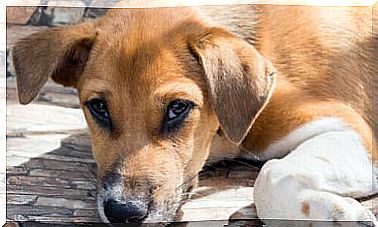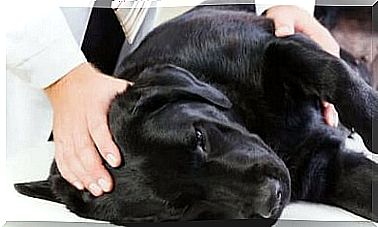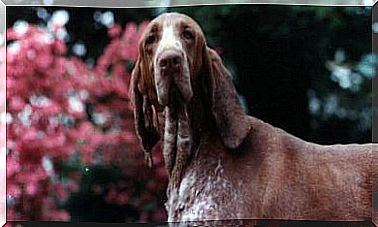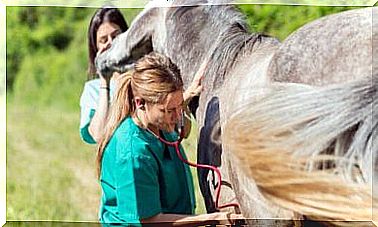Brown Vomit In Dogs: Everything You Need To Know

Although vomiting is a common symptom of many diseases, it should never be overlooked. In some cases, the dog may simply be throwing up because he ate something inappropriate. However, the appearance of brown vomit in dogs can indicate that something much more serious is going on .
Here are some of the common causes of brown vomit in dogs:
- Hemorrhagic ulcers.
- Intestinal obstruction.
- Inappropriate food.
- Other sources of bleeding (such as cancer or gum disease).
Some of the causes of brown vomit are more serious than others. For example, bleeding ulcers and intestinal obstructions need to be treated immediately. If your dog is losing brown fluid from something he ate, or as a result of internal bleeding, the severity of the condition will depend on what he ingested or how and where such bleeding develops.
Causes of brown vomit in dogs
Brown vomit in dogs can have a variety of causes and can affect any dog . While it may be alarming to find that the dog excretes brown liquid, in most cases the animal will be able to recover without permanent side effects. Provided he receives the appropriate treatment.
If the dog develops an ulcer and starts bleeding, vomiting may occur. If the ulcers are found in the upper intestine or stomach wall, the vomit may turn brown, as the blood would eventually be digested by stomach acid.
An intestinal blockage can also cause brown vomiting. The intestine can become blocked by ingesting an object that is impossible to digest. We are talking, for example, of coins, bones, buttons, socks and underwear, toys and marbles.
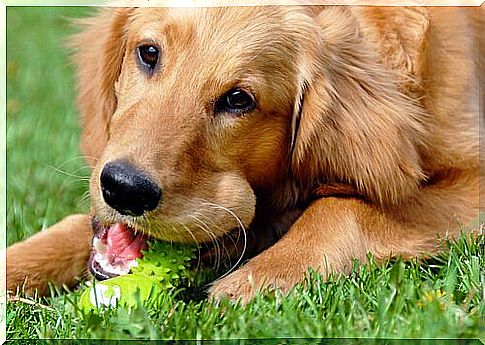
Obstructions can develop in the presence of bones, which cause a growth in the abdomen. Objects will move through the gastrointestinal tract in about 10 to 24 hours and signs of an obstruction will only occur 24 hours after ingestion.
Sometimes, however, the speech can be simpler. Like if your pet has ingested chocolate, dirt, or feces. All of these elements are sufficient to cause brown vomiting.
Another reason could be bleeding in the digestive tract. It is a situation that occurs when there is a tumor in the upper small intestine or stomach. Or even from the leakage of blood from a gum and due to certain pathologies of the teeth or diseases. Or even as a result of a clotting disorder.
One warning sign of excessive blood loss is to notice pale gums. Even the presence of unusual lethargy or weakness can be a warning sign of something wrong. Better to take your four-legged friend to the vet right away.
What to do with brown vomit in dogs
Stomach ulcers can usually be easily managed medically. But if there is a perforation of the stomach walls, there is nothing left but surgery.
When stomach ulcers are severe, even if they haven’t pierced the stomach wall, your dog may also need hospital treatment and blood transfusions. As well as intravenous replacement therapies and the administration of electrolytes and adequate nutritional support.
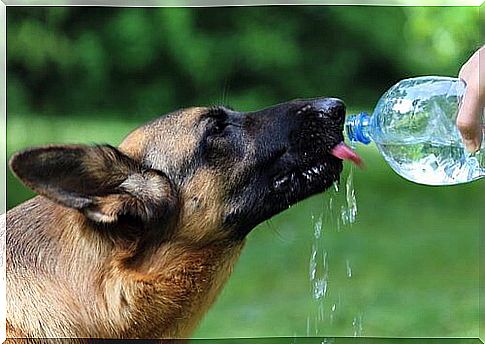
Foods that are highly digestible can help reduce irritation and inflammation in the digestive tract. The best way is to feed him small meals several times a day. Also, your dog should always be well hydrated, unless your vet recommends otherwise.
Timing is key. If you can get your pet to the vet shortly after noticing the stomach obstruction, surgery can be avoided . In fact, any object can be removed with a simple endoscopy . If tissue death, called necrosis, occurs, the affected parts of the intestine will need to be removed, along with the object.
How to prevent brown vomiting?
The best way to prevent intestinal blockage is to monitor your pet and take action if you find that they are eating something they shouldn’t. Do not allow them to play with leather items, boiled bones and other unsafe toys.
Give him pastimes larger than his throat, so that it will be impossible to swallow them. As it can often contribute to stomach irritation, try to eliminate sources of stress, such as loud noises, in the animal’s environment.
If you notice that your dog has ingested something, your vet may suggest that you induce vomiting to prevent a blockage from forming.
It may be helpful to teach your dog the order to “let go” or “let go” of what he has in his teeth whenever you see that it is a possible danger. It is also useful to review the diet, for example by introducing highly digestible foods, which can reduce inflammation and irritation, thus preventing the possible formation of ulcers in the stomach.
